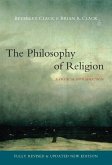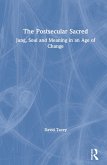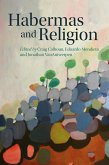How can suffering and injustice be reconciled with the idea that God is good, that he loves humans and is merciful to them? Job's question runs through the history of the three monotheistic religions. Time and again, philosophers, theologians, poets, prophets and laypersons have questioned their image of God in the light of a reality full of hardship. Some see suffering as proof of God's existence, others as a demonstration that there can be no God, while others still respond by rebelling against Him. In this remarkable book Navid Kermani - a distinguished Islamic scholar of Iranian origin - sees this revolt against God as the central motif of one of the great but neglected works of literature: The Book of Suffering by the thirteenth-century Persian poet Faridoddin Attar. Through the prism of Attar's text Kermani tells the story of a religious faith that knows God but is angry with Him: a counter-theology that runs through many religions and connects Judaism, Islam and modernity. With astonishing range and stylistic brilliance Kermani brings Attar to life as one of us, enabling the great Persian poet to speak directly to us today despite the time that separates us.
"In this passionate, scholarly, and brilliantly written book, Navid Kermani explores a powerful half-hidden current within the theology and poetry of all three Western monotheisms: a brooding, irrepressible quarrel with God. The heroes of The Terror of God are neither pious figures who submit to divine providence nor atheists who deny that the universe has any creator or design. Kermani is fascinated instead by those who quarrel with God and protest vehemently against the cruelty, injustice, and unspeakable misery of the world He made. At the center of a vast network of kindred spirits - from Sophocles to Samuel Beckett, from Job to Dante to Heine - stands the remarkable figure whom Kermani brings most vividly to life: the thirteenth-century Sufi mystic Faridoddin Attar." -- Stephen Greenblatt, Harvard University
"Why does God permit humans to suffer? Navid Kermani attacks this question with unflinching honesty in his reading of The Book of Suffering by the great Persian poet Fariduddin Attar. Kermani places the Sufi's quarrel with God into a deep literary and philosophical conversation, ranging from Job through the Qur'an to modern philosophers and the Holocaust. This mesmerizing reflection on a fundamental existential dilemma provides no easy solutions, but it lays out the problem with remarkable elegance and clarity." -- Carl W. Ernst, University of North Carolina at Chapel Hill
"Why does God permit humans to suffer? Navid Kermani attacks this question with unflinching honesty in his reading of The Book of Suffering by the great Persian poet Fariduddin Attar. Kermani places the Sufi's quarrel with God into a deep literary and philosophical conversation, ranging from Job through the Qur'an to modern philosophers and the Holocaust. This mesmerizing reflection on a fundamental existential dilemma provides no easy solutions, but it lays out the problem with remarkable elegance and clarity." -- Carl W. Ernst, University of North Carolina at Chapel Hill









